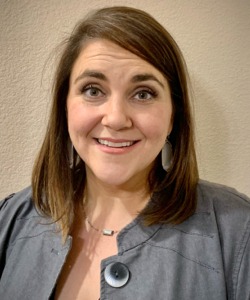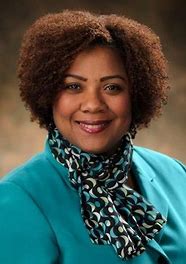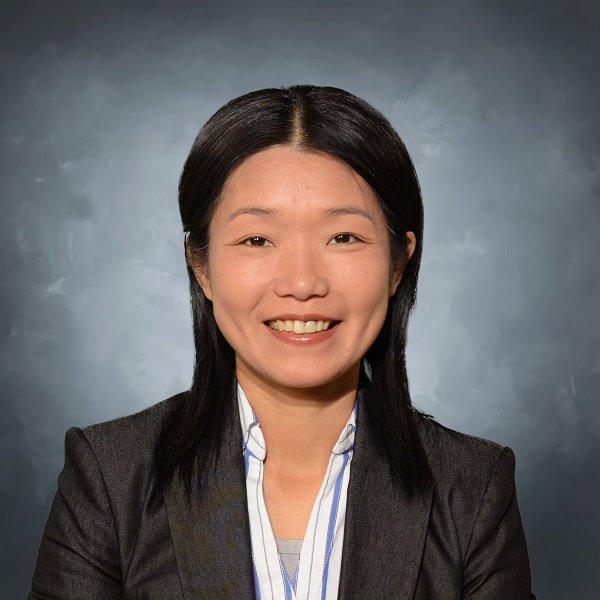TONL Scholarship and EBP Award Winners Announced
![]() Print this Article | Send to Colleague
Print this Article | Send to Colleague
TONL is pleased to announce the recipients of the 2020 TONL Scholarship Program and EBP Research Grants. TONL Scholarships are awarded to applicants enrolled in an accredited graduate program in Nursing at the masters or doctoral level. Applicants much demonstrate community service involvement and must submit a recommendation from a community service or volunteer agency. EBP Research Grant applications are also awarded based on the project proposal to increase knowledge to benefit the practice of nursing and patient outcomes.
TONL Scholarship 2020 recipients include:
Lauren Crump
Lauren Crump is a 37-year-old single mother of 3 children that remains on the education journey to obtain her DNP degree in 2021! Lauren’s goal is to become a professor at Texas Tech University at the graduate level. Lauren is actively doing everything she can to help make that dream a reality. Lauren has had a myriad of experiences professionally, and personally, that will add to her value as a graduate professor in the nursing profession. Not only will Lauren have the personal ability to relate to her students, but hopefully will inspire those around her so they can achieve their dreams and make a difference in nursing healthcare. As Lauren pursued her doctorate, she realized how nurses have the opportunity to be translational! Lauren plans to advocate for advanced education and involvement within unit councils and shared governance at each nurse's employer. Lauren’s most recent hospital employment was at a Magnet hospital. The experiences of that process and the "Just Culture" that she experienced remain ingrained as a positive experience that will be added to the wealth of knowledge Lauren has to share. Lauren has also had the opportunity to present Internationally in China on Shared Governance, and she highly encourages nurses to take time off and take advantage of the many options and opportunities that are available to us.
Jordan Dudley
 |
Jordan noted the Nurse Practitioners she knows are caring, patient focused, intelligent professionals that help people when they are most vulnerable. It is Jordan’s desire to be worthy of being counted as one of these healthcare servants. As an acute care Nurse Practitioner (NP), Jordan is able to use evidence-based information, holistic care, and motivational techniques to help her patients. Unfortunately, day-to-day care as an NP is often frustrated by hospital policies based in tradition and not research. In addition, there can be limits on government healthcare policies and the lack of nursing presence in leadership positions locally and nationally. These frustrations caused Jordan to pursue further education with a Doctorate of Nurse Practice in hopes that she can start influencing the NP profession as whole. Jordan hopes to become a leader in nursing, and to spur other nurses to become leaders as well. Nurses are uniquely positioned to see all aspect of healthcare. As leaders, they can positively affect the way care is given to patients. Jordan is pursuing a Doctorate of Nurse Practice because she believes it will empower her to lead in shifting policies from those based in tradition to policies that are research based. Others have inspired her in her career, and it would give her great pleasure to motivate other nurses to join in becoming leaders in their own institutions, their communities, their state, and their country. Jordan’s inaugural project will concern colorectal cancer, the second leading cause of cancer deaths in the U.S. The goal is to increase patients' satisfaction, decrease patients' discomfort, avoid delays in care, and shorten the patients' hospital stay. It will be implemented in a 700-patient metropolitan hospital. Jordan is excited to have a positive influence on patients' health, nurses' efficacy, and doctors' success.
Golda Manalili
 |
2020 is the trifecta for nursing: The Year of the Nurse and Midwife, the year the World Health Organization (WHO) released the inaugural Status of Nursing Report, and the year the National Academy of Medicine launched the Future of Nursing 2020-2030. It is also the year Golda decided to pursue my DNP – and she is glad she did! Golda’s motivation for undertaking her DNP stems from her deep love for the nursing profession and her desire to contribute to the development of new nurse leaders. As a nursing executive director, Golda has served as a mentor to her staff and witnessed their transformation from novice to expert nurses in various roles - as charge nurses, shift supervisors, and unit managers. Golda notes she is fortunate to stand on the shoulders of great mentors. As she pays-it-forward, Golda believes that she can give more as she continues to advance in her career. The DNP program provides Golda with the competencies to influence future nurse leaders. Ultimately, she will be an integral part of developing a highly competent and qualified nursing workforce. The DNP essentials shape her knowledge with an understanding of the scientific underpinnings for practice and clinical scholarship. Golda’s pursuit of leadership competencies, systems thinking, information systems, and quality improvement allows her to promote healthcare systems excellence. As she continues to empower my staff and foster a healthy work environment, her DNP education will further build her professional repertoire on interprofessional collaboration. Golda works for an outstanding Magnet-designated organization that invests in its people to engage also in professional organizations. Golda is involved in several nursing associations including the Academy of Medical-Surgical Nurses, the San Antonio Nursing Consortium (SANC), and the TONL. Golda currently serves as the President of the Philippine Nurses Association of San Antonio and Board Member of the Asian American Alliance of San Antonio. Learning the concepts of health care policy and advocacy in her DNP education provides Golda with insights to promote the health of the community. Golda has organized SANC nurses to become trainers for the Stop-The-Bleed and Active Shooting Classes in collaboration with University Health and the Bexar County Sheriff’s Office. Golda has also participated in the distribution of masks to frontline workers in San Antonio and a food drive for the San Antonio Food Bank amidst the COVID19 pandemic. Golda began her narrative with the Year of the Nurse and Midwife, the WHO’s Status of Nursing Report, and the Future of Nursing 2020-2030. As she takes stock of the opportunities she has enjoyed, her advanced education and her national board certification will allow her to leave a legacy as a nurse manager, leader, and mentor, explore and study the findings of the WHO’s Nursing Report, and contribute to the goals of the Future of Nursing 2020-2030. Armed with advanced leadership competencies, Golda will be able to continue to contribute to the growth of her staff, improve the care of the patients receiving their care, promote the health of our community, and advance the nursing profession.
Deitra Brown
 |
For most of her nursing career Deitra have been involved in the care of children with congenital heart disease, where many of them did not survive into their teenage years. However, due to advancements in medical technologies, children with congenital heart disease are surviving into adulthood, requiring lifelong care. This new phenomenon poses a challenge for pediatric and adult cardiology health care providers, as well as their respective health care organizations. Ensuring that these patients receive the care they need will require intentional transition of care, coordination, and education. After graduation, Deitra plans to continue her DNP project of educating pediatric cardiology nurses and adolescent cardiology patients, as well as their parents, on transition of care principles, and expand the same principles to other childhood diseases that transition into adulthood. Deitra noted “I see my project as an opportunity to equip pediatric nurses with the knowledge they need to help adolescent patients and their parents transition management of care from the caregiver to the patient, and transition from pediatric health care providers to adult health care providers without experiencing gaps in care.” Gaps in care may result in increased morbidity or mortality for these complex patients, but they also result in increased health care costs associated with emergency room visits instead of a primary care physician visits or the need for invasive treatments when opportunities for preventive measures are missed. Incorporating transition of care principles into pediatric nurse’s education of adolescent patients could positively impact an organization’s health care expenses and quality outcomes. Additionally, during Deitra’s DNP journey she has been challenged to look at the current and future needs of this patient population and have come to understand that transition of care preparation is only a small part of the process in their lifelong health care journey. Deitra hopes to encourage pediatric nurses to become advocates for health policies that improve health care delivery, outcomes, and insurance coverage for children with complex diseases that transition into adulthood. These nurses are stakeholders in the care of their patients, and as clinicians they have expertise and personal stories to share that can influence policy makers. As Deitra learns of the various platforms for nurses to give voice for change, she will invite colleagues to join her in creating a collective voice for nursing. Finally, completion of her DNP program would be a personal achievement for Deitra that will create new opportunities. For others, it would validate Deitra’s ability to lead interprofessional teams within my organization, and collaborate on policy and or practice changes. With the knowledge gained, Deitra can build upon the platform of DNP prepared nurses within her organization in providing leadership in implementing quality improvement efforts at the department level, as well as across our health care system. Deitra is committed to leading by example with integrity and grace, so that others will see the value of the DNP nurse.
TONL 2020 EBP Research Grant recipients include:
Li-Chen Lin, PhD, RN, CNRN
Clinical Assistant Professor, The University of Texas at Austin, School of Nursing
Project Title: Innovative Medication Teaching with Cognitive Load Learning Theory
 |
Project Summary/Abstract: Effective medication teaching can improve patient outcomes while reducing healthcare costs by improving medication adherence and preventing unnecessary readmissions due to patients’ insufficient knowledge about their medications. However, quality medication teaching faces challenges in our fast-paced, complex healthcare system. Simply to provide patients with information about their medications in the traditional manner is not enough; one must verify patients’ understanding. Standard medication information is often difficult for patients to read and understand, and current medication teaching materials are not designed or tailored for people with limited health literacy. In this project, we will evaluate the effectiveness of medication education handouts designed and tailored according to principles of cognitive load learning theory for the improvement of comprehension and retention of medication knowledge among adults with limited health literacy. We will address the following PICO question: In adults with limited health literacy, would medication education handouts designed and tailored with cognitive load learning theory, improve people’s understanding and retention of medication knowledge in comparison with traditional textual medication education handouts?
In our novel handouts, we will replace traditional textual medication information with icons or illustrations and reduce traditional large amounts of textual information to simple, instructive information presented in plain language. Comparisons of participants’ medication knowledge before and after they receive medication education will assess the medication teaching’s effectiveness. This is an evidence-based approach to medication teaching, applying cognitive load theory with teach-back. The results will inform practice guidelines for medication teaching for adults with limited health literacy. We will create easy-to-follow guidelines with steps for clinicians that can be used widely regardless of practice settings. Our population sample will comprise adult community members who are currently taking prescription medications. Our rationale for this proposal is that medication education handouts based on cognitive load learning theory should make it easier for adults with limited health literacy to process, comprehend, and retain medical information. Because of restrictions currently in place in most healthcare facilities due to the COVID-19 pandemic, we will test medication teaching-learning among adults within the community members as participants; implementing a medication teaching project within a healthcare facility at present might create unnecessary burden.
Jacqueline M. Gordon, DNP, APRN, CCNS, CCRN-K
Director, Professional Practice and Innovation, St. David’s Round Rock Medical Center
Project Title: Implementing a Redesigned Shared Professional Governance Structure
Objective and PICO Question: The purpose of this project is to determine if a clinical nurse led shared professional governance redesign improves nurses’ perception of the level of shared professional governance (SPG) and reduces registered nurse (RN) turnover. The Population, Intervention, Comparison, and Outcome (PICO) question to guide this project is: Does implementation of a clinical nurse led shared professional governance structure improve nurses’ perception of the level of SG, increase nurses’ engagement, and reduce RN turnover one year after implementation?
Background and Significance: SPG is a nonhierarchical structure that creates an environment of shared decision making amongst nursing professionals and organizational leaders. Subsequent outcomes of RN retention, enhanced nursing practice, and improved patient outcomes may be achieved as a result of a robust SPG structure. In the project setting, a needs assessment revealed the current SPG structure is suboptimal. The current structure lacks a forum to address workplace environment, specifically nurses’ well-being needs as a result of caring for patients during the pandemic. All cause RN turnover has increased over the past year from 16.3% to 19.2%.
Methods: Using a pretest/posttest design, the Index of Professional Nursing Governance 3.0 (IPNG 3.0) and the Decisional Involvement Scale (DIS) will be administered to a convenience sample of RNs employed at a 171 bed acute care hospital. Pre-implementation IPNG 3.0 and DIS scores will be used in to inform the redesign of the SPG structure and post-implementation scores will be evaluated one year following the intervention to evaluate the impact of the SPG structure. RN turnover will be evaluated during the course of the project to evaluate work environment related turnover and all cause RN turnover will be evaluated one year following the intervention.
Conclusion: This evidence-based practice project aims to implement a clinical nurse led SPG structure informed by nurses’ feedback using valid, reliable tools in efforts to improve nurses’ perception of SG, increased nurse engagement, and reduce RN turnover. In turn, it is anticipated that positive patient outcomes and organizational cost containment will be realized. It is possible to replicate the planned clinical nurse led SPG redesign in other healthcare organizations.
Please join TONL in congratulating each of the Scholarship and EBP Grant Recipients.

